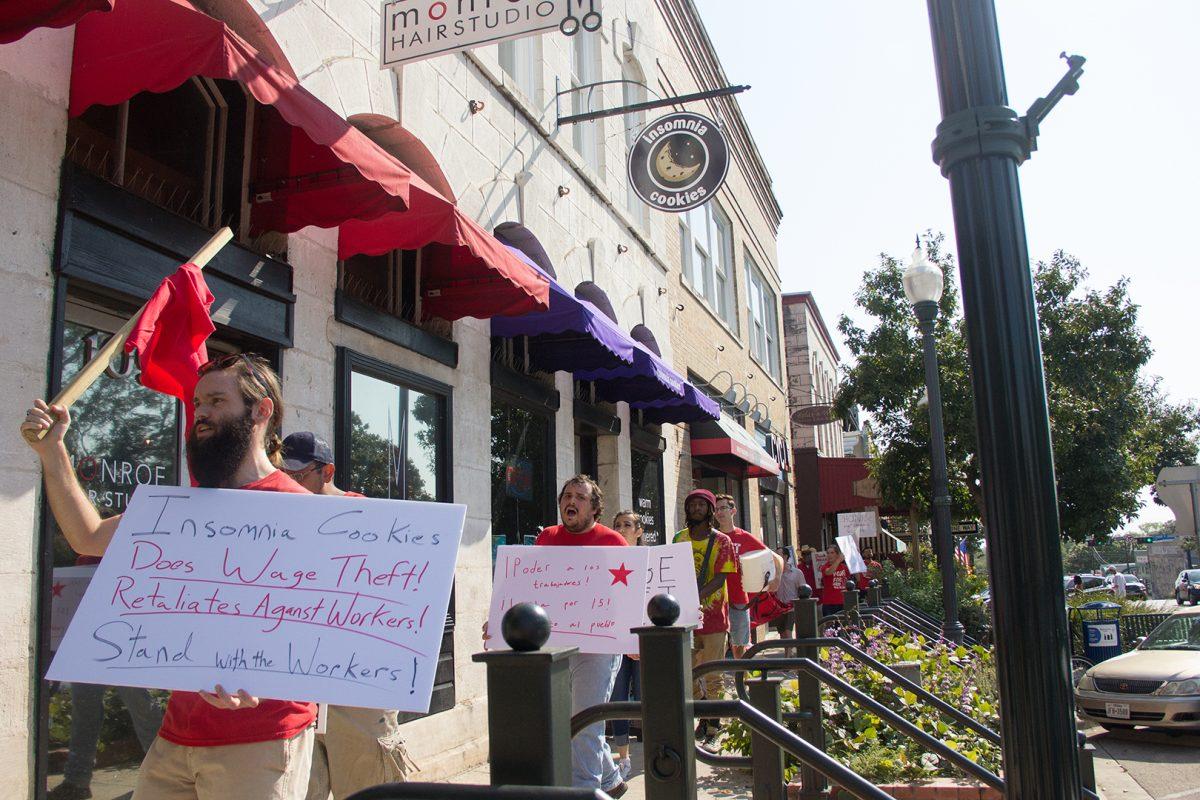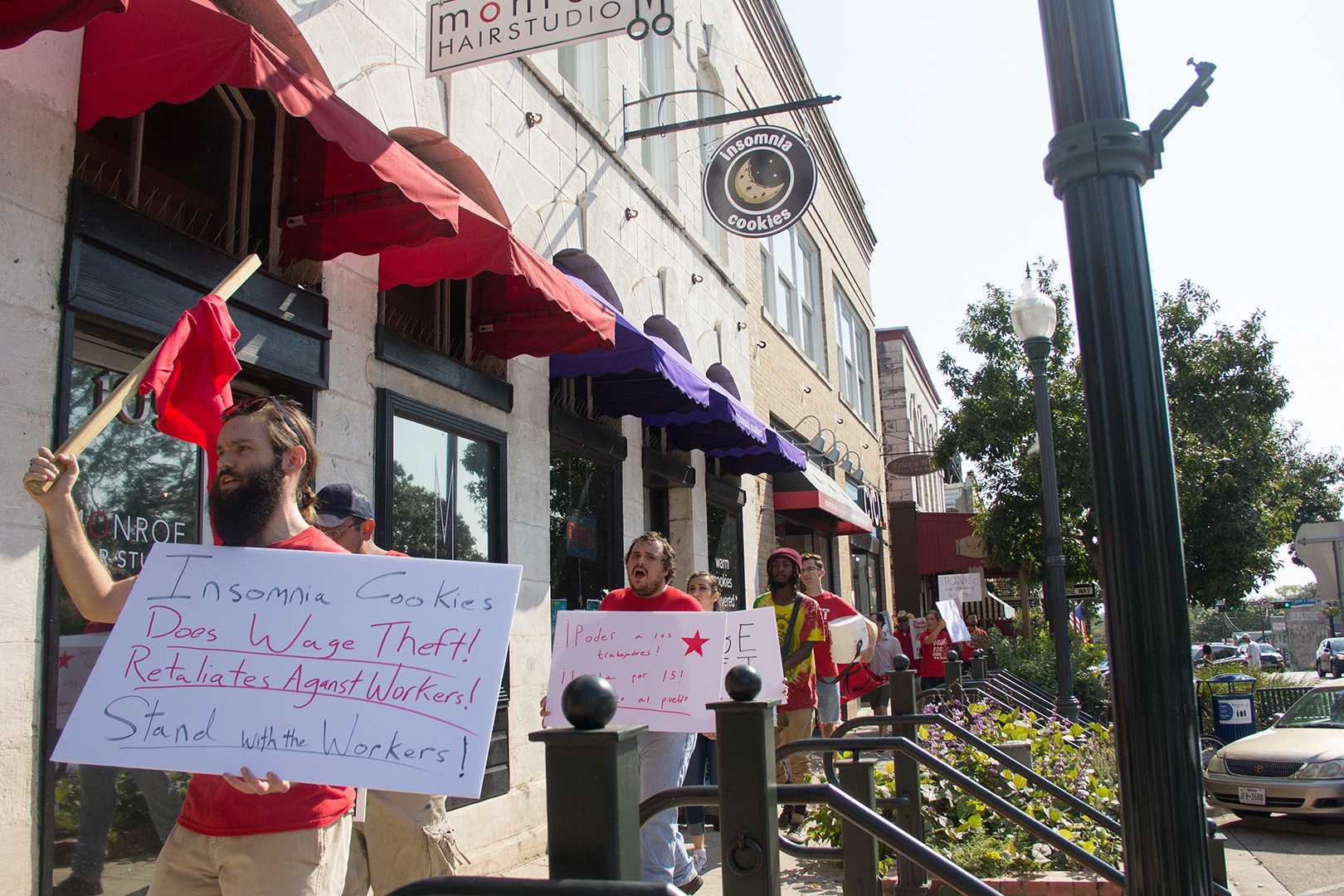Over the last 40 years, workers have faced an unrelenting assault on our standard of living. Wages for the majority of us have remained stagnant, or even declined in some cases, while our personal debt levels have exploded. Our mental and physical health is buckling under the burden of financial stress and inadequate access to healthcare. For those of us raised on the myth of the American Dream – guaranteed easy access to education, stable employment, affordable housing, retirement pensions – we cannot help but feel cheated, manipulated even. What happened? Why us?
When the militant labor movement of the 1930s found stability in the post-WWII order, the world was a much different place. Despite having less than 7 percent of the world population, at the close of WWII the US controlled around 50 percent of all global wealth. This created a situation where companies were able to spend a little money to secure labor peace. Unions became institutionalized and bureaucratic. Gone were the days of the militant class struggle unionism that led the Flint sit-down strike or the Teamsters strike in Minneapolis.
While “A fair day’s wage for a fair day’s work,” remained labor’s official slogan, union leadership had a new saying they circulated amongst themselves: “If you aren’t at the table, you’re on the menu.” Labor peace would be bought by these leaders at whatever cost to rank and file workers, so long as these leaders remained at the table, their big salaries propped up by the illusion of equality with CEOs.
These new business-friendly unions focused on teamwork between workers and management. Union leaders thought the post-WWII arrangement was permanent, so long as they kept their demands “reasonable.” The stagflation crisis of the mid-70s, however, was a tremendous shock to the labor movement. Germany and Japan had finally recovered from WWII devastation and become major global competitors, subsequently cutting into US profit margins. Union leadership may have given up on class struggle, but business leaders across the country had not. Profits had to be restored, no matter the cost to workers.
From that crisis forward, unions began to see a relentless decline in membership density, from around 33 percent of the private sector workforce after WWII to less than 10 percent today. This decline tracks almost exactly with the decline in workers’ share of income. When low wage workers in New York City walked off the job in 2012 to fight for a $15/hr minimum wage and union rights, every political leader across the country could not help but clutch their pearls at such unreasonable demands. Of course, this pearl clutching relies on historical ignorance; had worker productivity continued to be tied to wage increases, as it had when unions were strongest, the minimum wage would be over $20/hr.
If Millennials know about unions at all, it is almost exclusively for helping to boost pay and benefits. Being able to pay your bills is obviously important to people caught in the undertow of day-to-day struggle, but it can miss the forest for the trees. Under capitalism, money is how we express social power, the same way social power was expressed through land and titles under feudalism.
For workers today, the fight for power cannot just mean the fight for better pay, though. What good is better pay if you are going to be shot in the streets for the color of your skin? Or snatched up by ICE while fleeing a natural disaster? Or if the entire planet is destroyed in the pursuit of cheap energy for more profits for the few?
Today, low wage workers across the country are once again walking off the job, but instead of focusing on the minimum wage increase that has fueled the movement so far, workers are putting front and center their demand for a union, free from retaliation and intimidation. This is a fight for a new labor movement for our generation. If we do not want to repeat the mistakes of our parents and grandparents, we have to fight for better pay today, but for a whole new world tomorrow. It is time to go to work and build fighting unions for our generation.
– Brad is an economics major and a labor organizer.
Categories:
Only unions can save us
September 4, 2017
David Simoneaux, Insomnia Cookies driver, leads a march Sep. 2 through the San Marcos Square. Fight For Fifteen followed closely behind, ready for the labor strike to take place on Monday.
Photo by Lara Dietrich
0
Donate to The University Star
Your donation will support the student journalists of Texas State University. Your contribution will allow us to purchase equipment and cover our annual website hosting costs.
More to Discover







